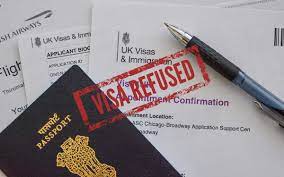Introduction
When planning a trip to India, one of the first steps you’ll need to take is obtaining the appropriate visa. India offers various types of visas to cater to the diverse needs of travelers. In this comprehensive guide, we will explore the different TYPES OF INDIAN VISA, helping you determine the one that best suits your purpose and explaining the necessary steps to obtain it.
Indian Tourist Visa
If you’re visiting India for tourism, exploring its rich history, vibrant culture, and stunning landscapes, the Indian Tourist Visa is the one you need. This visa typically grants you entry for 180 days, and it can be obtained for a single or multiple entries.
Indian Business Visa
Business travelers will require an Indian Business Visa to engage in commercial activities, attend meetings, or establish business connections. This visa comes in various subcategories, including the Business Visa, Employment Visa, and Project Visa, each designed to address specific business-related purposes.
Indian Medical Visa
For individuals seeking medical treatment in India, the Indian Medical Visa is the way to go. India is renowned for its world-class medical facilities and affordable healthcare services, attracting patients from around the globe. This INDIAN VISA TYPES is essential for those traveling for medical procedures.
Indian Student Visa
If you’re planning to study in India, you’ll need an Indian Student Visa. This type of visa allows you to pursue academic courses in India’s esteemed educational institutions. To apply for a Student Visa, you must obtain a confirmation of your admission to an Indian educational institution.
Indian Employment Visa
Employment in India necessitates an Indian Employment Visa. It is essential for foreign nationals seeking employment in India and requires sponsorship from the employer. Employment visas have specific subcategories, such as the Project Visa and the Research Visa, tailored to different employment scenarios.
Indian Conference Visa
When attending a conference, seminar, or workshop in India, the Indian Conference Visa is the appropriate choice. This visa is granted to delegates and participants who are attending an event organized by the Indian Government, a UN body, or an International organization.
Indian Research Visa
Researchers looking to collaborate with Indian institutions or conduct research in India can apply for an Indian Research Visa. This type of visa is perfect for scholars and researchers who plan to stay in India for an extended period.
Indian Journalist Visa
For foreign journalists, a specific visa category exists – the Indian Journalist Visa. It’s important to note that journalists must follow guidelines and regulations set by the Ministry of External Affairs when applying for this visa.
Indian Film Visa
India’s thriving film industry attracts filmmakers and artists from across the world. The Indian Film Visa is tailored to cater to the needs of those involved in the filmmaking industry, including actors, directors, and production crews.
Indian Transit Visa
If you’re transiting through India on your way to another destination, the Indian Transit Visa is what you need. It allows a short stay in India while you wait for your connecting flight. Make sure to check the specific guidelines and duration for this type of visa.
Indian Entry Visa
The Indian Entry Visa is issued to people of Indian origin and their dependents. It allows them to enter India for long-term stays, family reunions, or other specific reasons.
Indian e-Visa
India has embraced technology to simplify the visa application process. The Indian e-Visa allows travelers from many countries to apply for and receive their visa online, reducing the hassle and time associated with traditional visa applications.
To obtain an Indian Visa, here are the general steps you need to follow:
Determine the Appropriate Visa Type: As discussed above, choose the visa type that aligns with the purpose of your visit.
Complete the Application Form: The application form can be filled out online or obtained from the Indian embassy or consulate in your home country.
Gather Required Documents: Different visa types may require specific documents such as a letter of invitation, proof of employment, or proof of admission to an educational institution. Be sure to gather all the necessary documents.
Pay the Visa Fee: Visa fees vary depending on the type and duration of the visa. Make sure to pay the required fee through the designated channels.
Submit Your Application: If you’re applying through the traditional method, submit your application at the nearest Indian embassy or consulate. For e-Visas, submit the application online.
Biometrics and Interview: Depending on your country of residence and the type of visa, you may need to provide biometrics or attend an interview.
Wait for Processing: Visa processing times vary depending on your location and the visa type. Be patient and keep an eye on your application status.
Receive Your Visa: Once your application is approved, you will receive your visa stamped in your passport or an electronic visa if you’ve applied for an e-Visa.
Conclusion
India offers a range of visa types to accommodate the diverse needs of travelers. It’s crucial to select the right visa type and follow the application process meticulously to ensure a smooth and hassle-free trip to this incredible country. Whether you’re a tourist, student, business traveler, or a journalist, India welcomes you with open arms, provided you have the appropriate visa in hand. Make sure to check the latest updates and requirements on the official Indian government website or your nearest Indian embassy or consulate to stay informed and enjoy your journey to the fullest.

